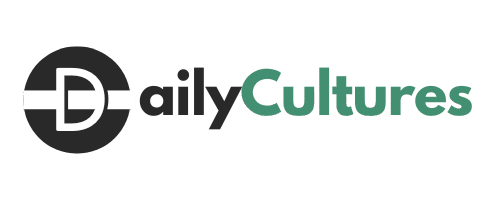How Everyday Banking Tools Like Checks and Credit Cards Impact Your Finances

Banking doesn’t always feel complicated. Swipe a card, write a check, deposit money, move on.
But here’s the thing — those small, everyday tools you use without thinking? They shape your financial life in ways most people never stop to consider.
Checks, credit cards, and routine bank transactions aren’t just pieces of paper or plastic—they’re powerful instruments that can either fortify your financial foundations or slowly erode your wealth over time.
Understanding how each one plays a strategic role in spending, budgeting, and savings can transform the way you manage your money.
Credit Cards: More Than Just Swipes
For many people, a credit card is the go-to payment method. It’s easy, it’s accepted almost everywhere, and sometimes you get perks — cash back, airline miles, rewards points. Sounds great, right?
But what about a credit card with cash advances? That’s where things shift. Swiping for groceries or gas is one thing. Using your card at an ATM to pull cash is another.
Cash advances often:
- Come with higher fees (3–5% of the amount you withdraw).
- Charge higher interest rates than regular card purchases.
- Start accruing interest immediately (no grace period).
- There are no rewards or protections under programs like purchase dispute resolutions.
- It counts toward your credit utilization ratio; their frequent use or carrying high balances can hurt your score.
So yes, credit cards can be smart tools — but only if you use them with discipline. Carrying a balance month-to-month? Or leaning on cash advances often?
That’s when the card stops being a tool and starts being a trap.
Checks: Old-School, Still Relevant
Even with apps and online transfers, checks haven’t disappeared. Rent payments, utility bills, insurance refunds—they’re still part of everyday banking.
But writing or reading checks requires attention to detail, particularly when it comes to where can I find the account number on a check.
It’s right there along the bottom of a personal check — usually the second set of numbers after the routing number. The account number links directly to your personal account. Which means:
- If you write it wrong, payments get delayed.
- If it falls into the wrong hands, someone could try to misuse it(unauthorized withdrawals or use your account info to create fake checks).
- If you’re unfamiliar with the layout, you might miss errors on the check or deposit slip. Checks can vary depending on whether the check is issued by a business or a bank.
So yes, checks feel old-school, but they demand precision. And knowing how to read them is still a basic money skill everyone should have.
How They Impact Your Bigger Financial Picture
Using checks and credit cards responsibly doesn’t just prevent mistakes. It builds your financial reputation.
- Credit cards build history. Lenders want to see how you manage borrowed money. Using a card, paying on time, and keeping balances low raises your score.
This track record gives you access to better interest rates and approval odds. - Checks require care.
They may not affect your credit score directly, but slip-ups (like frequent bounced checks) can harm your bank record, incur additional bank charges, merchant penalties, and possibly even legal issues.
Together, they influence how banks, landlords, and even employers view your reliability with money.
Common Mistakes People Make
- Treating a credit card like free money. It’s not. Every swipe is a mini-loan you’re expected to repay.
Overspending or failing to pay off balances can lead to high-interest debt and long-term financial strain. - Ignoring cash advance costs. Pulling money from your credit card with cash advances might feel convenient, but it’s one of the most expensive ways to access cash.
- Not knowing account numbers. Forgetting or misreading the account number on a check can cause delays, bounced transactions and even fraud.
- Mixing savings and spending. Using cards without keeping an eye on balances or skipping checkbook reconciliations leaves gaps in your budget.
- Forgotten renewals or impulse buys. They quietly erode your budget until you’re surprised by a low balance. Establishing a regular financial check-in can help you stay aware and in control.
Smarter Ways to Use These Tools
- Use credit for planned purchases. Groceries, travel, or bills you know you can pay off at month’s end? Perfect.
Random splurges? May lead to late or partial payments that can quickly escalate your debt.
- Avoid cash advances unless it’s life-or-death urgent. They’re financial quicksand.
- Check your account activity regularly. Whether you write checks or swipe cards, monitor statements. Catch errors before they snowball.
- Learn to read your checks. Knowing where to find the account number on a check isn’t trivia — it’s practical.
- Separate “needs” and “wants.” Credit cards should help with cash flow, not fund lifestyle inflation.
Why Everyday Banking Habits Matter
Think of it this way: the big financial moments (buying a house, getting a loan, financing a car) don’t happen in a vacuum. Lenders look at the patterns built from your everyday choices.
- Did you pay off your card each month?
- Did you manage your checks without bouncing?
- Did you avoid piling up debt from unnecessary cash advances?
By strengthening small, consistent habits, you’re building a solid financial reputation that underpins every future opportunity.
Final Word
Checks and credit cards may seem ordinary, but how you use them has ripple effects.
Smart money management isn’t about restriction—it’s about using these tools carefully. Because at the end of the day, your financial health is built on habits, and habits are built on the small choices you make with everyday banking.






